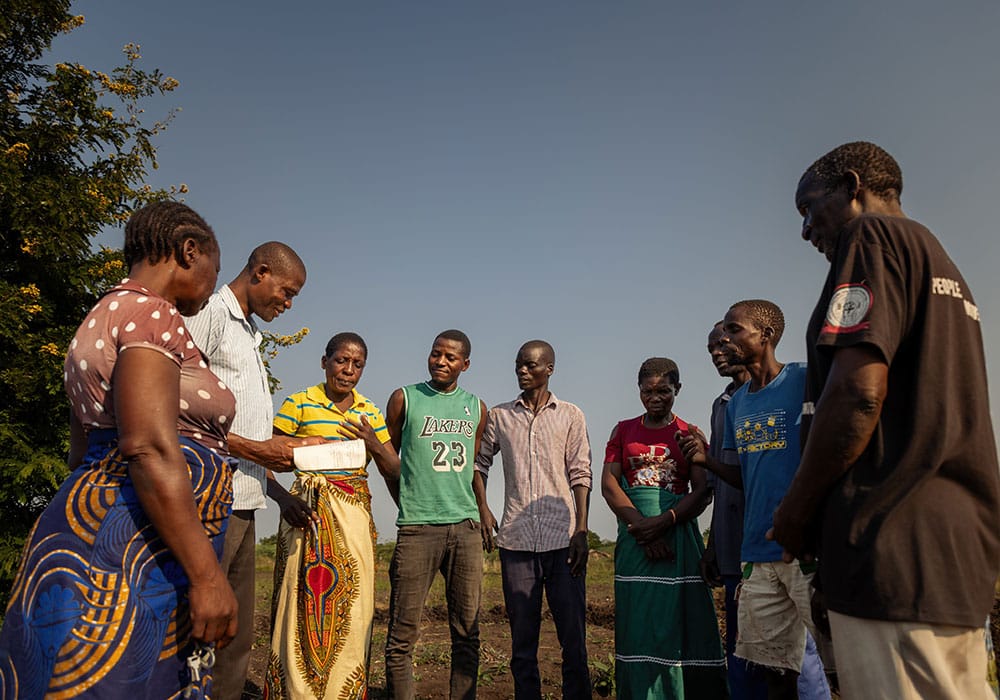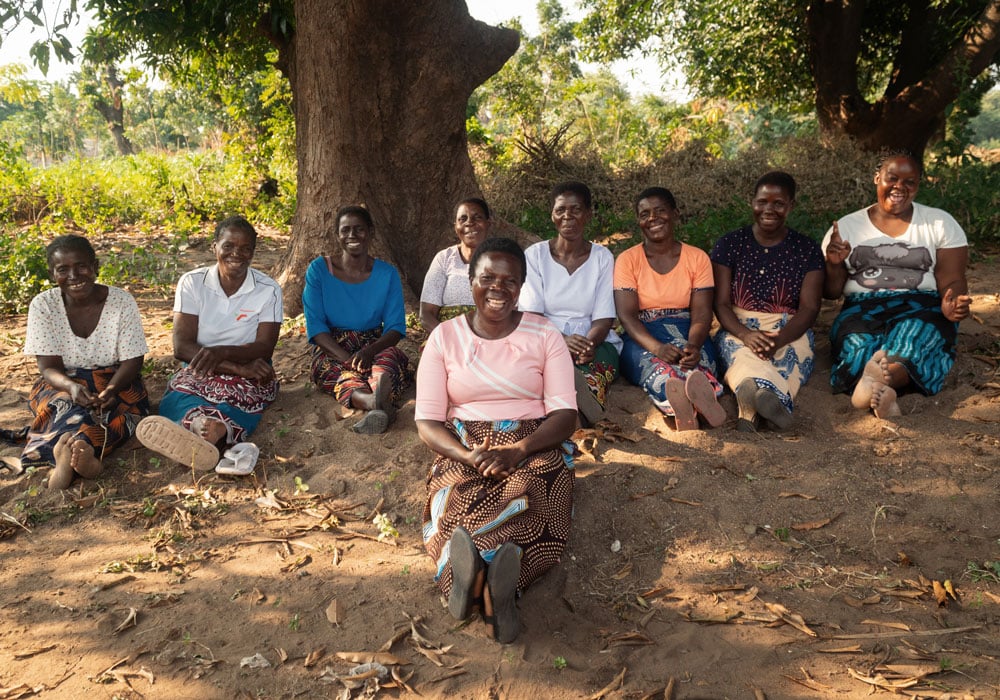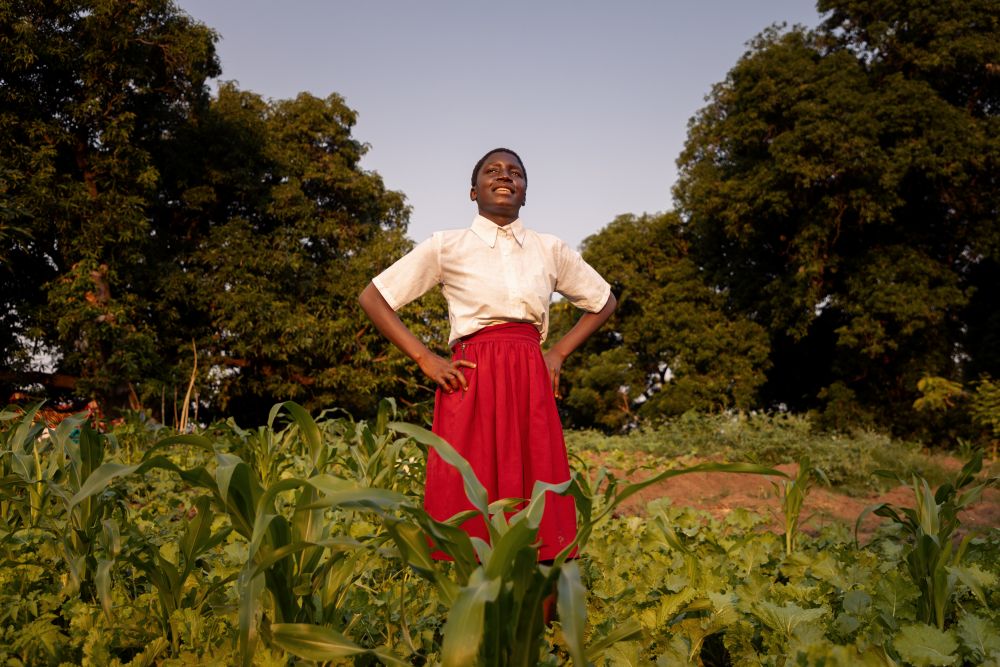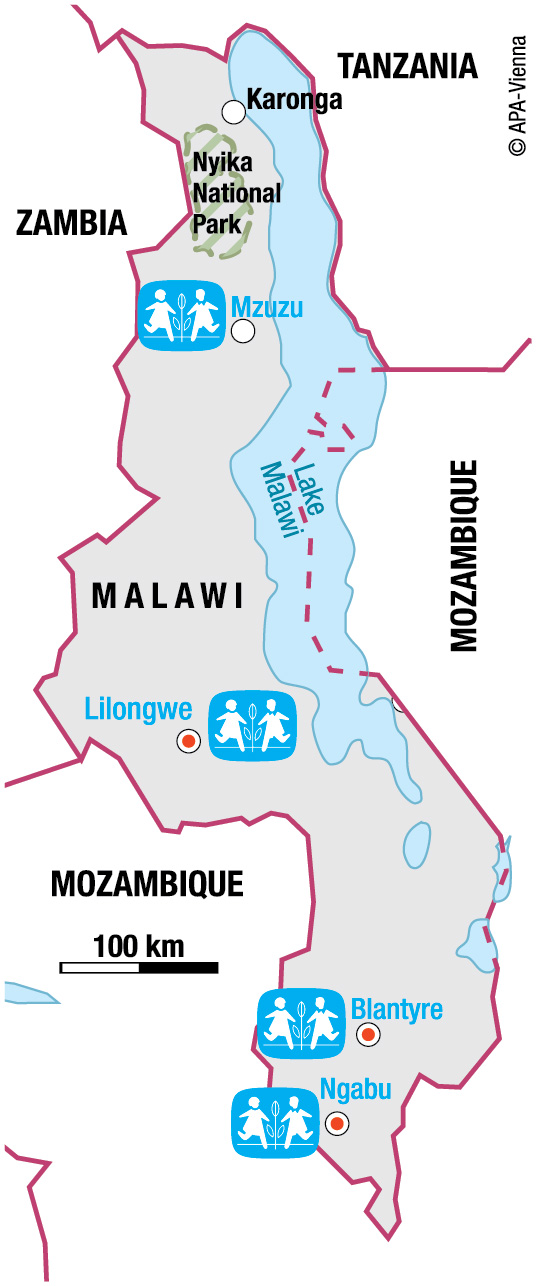
Vi er i Malawi
One of the world's least developed countries
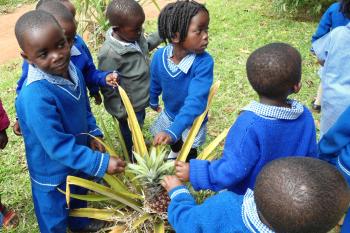-60779_jpg.jpg?width=800)
Young children from the SOS Kindergarten visiting an educational farm (photo: SOS archives).
The country's main economic pillar is agriculture, employing about 90 per cent of the workforce and accounting for roughly 30 per cent of the gross domestic product. Malawi largely depends on multilateral and bilateral economic assistance by the IMF, the World Bank and individual donor countries.
HIV/AIDS affects the lives of many families
Malawi is one of the poorest countries in the world. According to the United Nations, more than half of the population live in poverty. Out of 182 countries on the U.N. Human Development Index, Malawi currently ranks 170.
Tens of thousands, particularly in rural areas, face unimaginable living conditions. They remain without access to running water, decent sanitation and medical facilities. The proportion of poor is highest in rural areas of the southern and northern parts of the county. Access to public services and economic opportunities is profoundly unequal across the population.
The HIV/AIDS pandemic has a strong impact on society. Around 11 per cent of Malawians between 15 and 49 years of age live with HIV/AIDS, making the country one of the most affected nations worldwide. The disease remains the biggest health issue in the country. More than 50,000 Malawian citizens lose their lives to AIDS every year. After many years of silence, the authorities have now taken action and an ambitious programme to tackle HIV/AIDS has been launched. Malawi is highly vulnerable to changing climate conditions and natural disasters.
Tens of thousands, particularly in rural areas, face unimaginable living conditions. They remain without access to running water, decent sanitation and medical facilities. The proportion of poor is highest in rural areas of the southern and northern parts of the county. Access to public services and economic opportunities is profoundly unequal across the population.
The HIV/AIDS pandemic has a strong impact on society. Around 11 per cent of Malawians between 15 and 49 years of age live with HIV/AIDS, making the country one of the most affected nations worldwide. The disease remains the biggest health issue in the country. More than 50,000 Malawian citizens lose their lives to AIDS every year. After many years of silence, the authorities have now taken action and an ambitious programme to tackle HIV/AIDS has been launched. Malawi is highly vulnerable to changing climate conditions and natural disasters.
Children are suffering due to malnutrition and exploitation
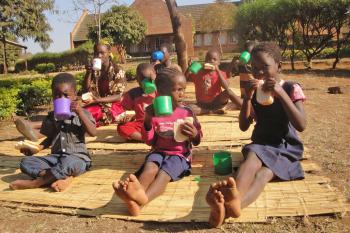-60100_jpg.jpg?width=800)
Children in our care enjoying their healthy breakfast in the garden (photo: SOS archives).
Although child mortality has improved substantially since the 1990s, Malawi is still marked by a fairly high under-five mortality rate of 75 per 1,000 live births.
SOS Children's Villages in Malawi
SOS Children’s Villages began working in Malawi in 1986.
Strengthen families: SOS Children's Villages works with local communities to support vulnerable families so that they can stay together. We ensure that they have access to basic goods and services such as health care and education. We also provide training and advice so that parents can generate an income to look after their children.
Care in SOS families: If, in spite of all support, children are unable to stay with their parents, they can find a new home in an SOS family. Children grow up with their brothers and sisters in a safe environment. Wherever possible, we work closely with the children’s family of origin, so that the children can return to live with them.
Education: We run kindergartens and primary and secondary schools in the country. Over 2,300 children attend these education centres. The vocational training centre in Lilongwe provides training for adults.
Support for young people: We support young people until they are able to live independently.
Emergency programme: Over the past few years we have supported families who have been affected by natural disasters. In early 2015, we assisted over 2,500 people who had been affected by the storms which caused serious damage. In early 2017, we started supporting families affected by the devastating drought. We provided immediate assistance for around 13,000 people and also worked with families to help them prepare for any future natural disasters.
Strengthen families: SOS Children's Villages works with local communities to support vulnerable families so that they can stay together. We ensure that they have access to basic goods and services such as health care and education. We also provide training and advice so that parents can generate an income to look after their children.
Care in SOS families: If, in spite of all support, children are unable to stay with their parents, they can find a new home in an SOS family. Children grow up with their brothers and sisters in a safe environment. Wherever possible, we work closely with the children’s family of origin, so that the children can return to live with them.
Education: We run kindergartens and primary and secondary schools in the country. Over 2,300 children attend these education centres. The vocational training centre in Lilongwe provides training for adults.
Support for young people: We support young people until they are able to live independently.
Emergency programme: Over the past few years we have supported families who have been affected by natural disasters. In early 2015, we assisted over 2,500 people who had been affected by the storms which caused serious damage. In early 2017, we started supporting families affected by the devastating drought. We provided immediate assistance for around 13,000 people and also worked with families to help them prepare for any future natural disasters.
